Working on eight countries – Cambodia, China, Indonesia, Mongolia, Nepal, the Philippines, Thailand and Viet Nam – the effort examines LGBT lived experiences from human rights and development perspectives.
Objectives
‘Being LGBT in Asia’ encourages networking between LGBT people across the Asia-Pacific region, building a knowledge and evidence baseline, developing an understanding of the capacity of LGBT organizations to engage in policy dialogue, and community mobilization. Through this work, ‘Being LGBT in Asia’ promotes understanding of the inherent human rights of LGBT people and the stigma and discrimination they face across every country in the region. It also outlines steps toward LGBT-inclusive development work for UNDP and the UN system; USAID and the US Government; and other development partners through production of strategic information (including eight comprehensive country reports) and other social and multimedia products. Finally, ‘Being LGBT in Asia’ highlights the views of LGBT participants from eight national LGBT community dialogues and links stakeholders who are working to enhance LGBT human rights across South, Southeast, and East Asia.
Strategy
This current analysis covers eight countries: Cambodia, China, Indonesia, Mongolia, Nepal, the Philippines, Thailand and Viet Nam. In addition to these countries, additional resources and experiences have been drawn more widely from countries and territories in South, East and Southeast Asia, including Laos, Bangladesh, Taiwan, the Hong Kong, Japan, the Republic of Korea, Malaysia, Myanmar, Singapore, Timor-Leste, regional civil society organizations, academic institutions, and private sector partners.
The results of this initiative will educate UNDP and USAID staff and development partners on critical rights issues facing LGBT people, inform decision-making leading to new programming, and seek to achieve mainstreaming of LGBT issues in existing development programming. The methodology will engage with civil society organizations and utilize innovative learning processes and social and multi-media resources and applications as a catalyst for creative interaction and to improve understanding of LGBT issues and empower young LGBT leaders.
This initiative will also develop critical networks amongst UNDP, USAID, and other development partners’ staff and country offices to ensure that UN and USG policies of inclusive LGBT development programming is supported both at the country and regional levels.
The outcomes of this collaborative effort will inform UNDP APRC and USAID RDMA strategic approaches and will also result in value-added services and products for other UN and USG entities around the world.
A significant part of this analysis will address the development case for donor cooperation programs in the LGBT context and draw on the experience and collaboration of civil society, private sector, national human rights institutions, and governments as appropriate.
Outcomes
‘Being LGBT in Asia’ has established an evidence base on LGBT rights and social issues in Asia-Pacific through convening eight inclusive national dialogues and a regional dialogue that will be held in the near future. Sensitizing key policymakers on LGBT rights allows for improved movement for social and legal change for LGBT rights issues. The initiative also reaches out beyond policymakers to engage other stakeholders including LGBT civil society in order to broaden alliances and focus attention on LGBT rights and health challenges. The stakeholders mobilized through these dialogues are now key actors in taking forward law reform and social changes at the country level. Critical to the initiative’s success is the use of new technologies and modern innovations such as various social media platforms to inform and disseminate relevant information to key stakeholders. Particular attention is paid to empowering LGBT youth and young leaders living and working in the Asia-Pacific region.
Working on eight countries – Cambodia, China, Indonesia, Mongolia, Nepal, the Philippines, Thailand and Viet Nam – the effort examines LGBT lived experiences from human rights and development perspectives.
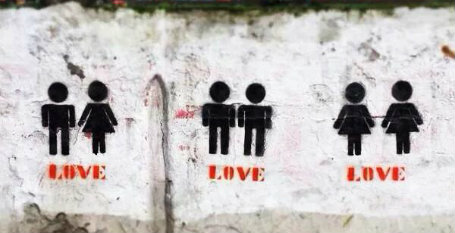
Objectives
‘Being LGBT in Asia’ encourages networking between LGBT people across the Asia-Pacific region, building a knowledge and evidence baseline, developing an understanding of the capacity of LGBT organizations to engage in policy dialogue, and community mobilization. Through this work, ‘Being LGBT in Asia’ promotes understanding of the inherent human rights of LGBT people and the stigma and discrimination they face across every country in the region. It also outlines steps toward LGBT-inclusive development work for UNDP and the UN system; USAID and the US Government; and other development partners through production of strategic information (including eight comprehensive country reports) and other social and multimedia products. Finally, ‘Being LGBT in Asia’ highlights the views of LGBT participants from eight national LGBT community dialogues and links stakeholders who are working to enhance LGBT human rights across South, Southeast, and East Asia.
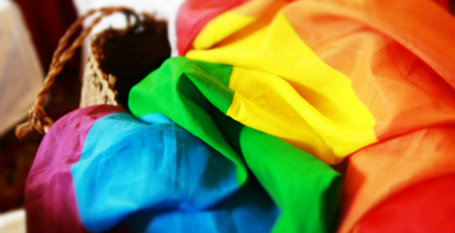
Strategy
This current analysis covers eight countries: Cambodia, China, Indonesia, Mongolia, Nepal, the Philippines, Thailand and Viet Nam. In addition to these countries, additional resources and experiences have been drawn more widely from countries and territories in South, East and Southeast Asia, including Laos, Bangladesh, Taiwan, the Hong Kong, Japan, the Republic of Korea, Malaysia, Myanmar, Singapore, Timor-Leste, regional civil society organizations, academic institutions, and private sector partners.
The results of this initiative will educate UNDP and USAID staff and development partners on critical rights issues facing LGBT people, inform decision-making leading to new programming, and seek to achieve mainstreaming of LGBT issues in existing development programming.
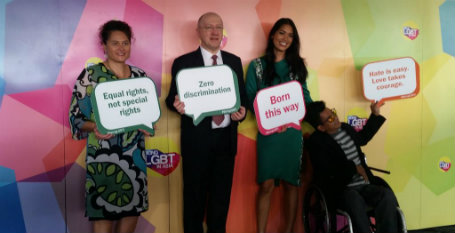
The methodology will engage with civil society organizations and utilize innovative learning processes and social and multi-media resources and applications as a catalyst for creative interaction and to improve understanding of LGBT issues and empower young LGBT leaders.
This initiative will also develop critical networks amongst UNDP, USAID, and other development partners’ staff and country offices to ensure that UN and USG policies of inclusive LGBT development programming is supported both at the country and regional levels.
The outcomes of this collaborative effort will inform UNDP APRC and USAID RDMA strategic approaches and will also result in value-added services and products for other UN and USG entities around the world.
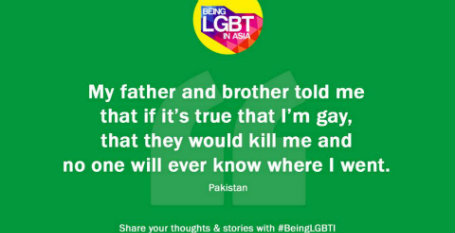
A significant part of this analysis will address the development case for donor cooperation programs in the LGBT context and draw on the experience and collaboration of civil society, private sector, national human rights institutions, and governments as appropriate.
Outcomes‘Being LGBT in Asia’ has established an evidence base on LGBT rights and social issues in Asia-Pacific through convening eight inclusive national dialogues and a regional dialogue that will be held in the near future. Sensitizing key policymakers on LGBT rights allows for improved movement for social and legal change for LGBT rights issues.
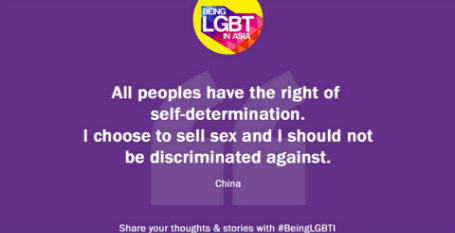
The initiative also reaches out beyond policymakers to engage other stakeholders including LGBT civil society in order to broaden alliances and focus attention on LGBT rights and health challenges. The stakeholders mobilized through these dialogues are now key actors in taking forward law reform and social changes at the country level.
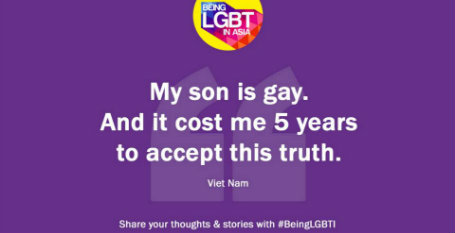
Critical to the initiative’s success is the use of new technologies and modern innovations such as various social media platforms to inform and disseminate relevant information to key stakeholders. Particular attention is paid to empowering LGBT youth and young leaders living and working in the Asia-Pacific region.

















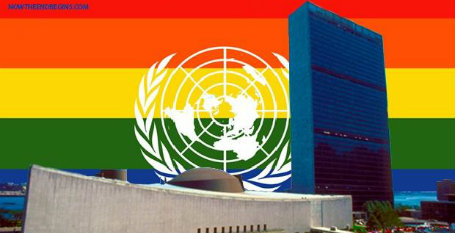
 打印版本
打印版本


















读者回应
抢先发表第一个回应吧!
请先登入再使用此功能。